In Brazil's Manaus, Young People Step Up As Covid Bites
Haylena Barbosa, a 22-year-old Brazilian, has put her old life on hold to help ease the pain and logistical challenges wrought by a devastating second wave of Covid-19 in her home city of Manaus in the Amazon.
More than 4,000 people have died in Manaus since the epidemic started last year, and the city is struggling to cope with a fresh onslaught -- its hospitals are running low on beds and medical oxygen.
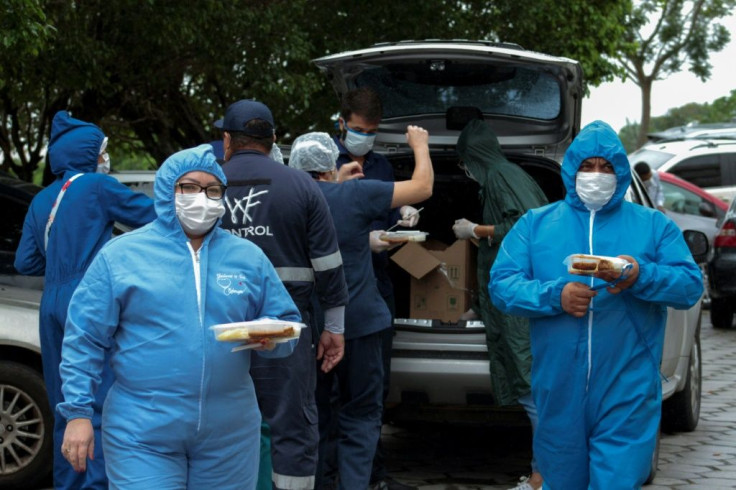
Manaus has seen record burials and refrigerated trucks have had to be brought in to hold bodies.
With hospitals overrun and medical staff exhausted, Barbosa and other young volunteers have taken it upon themselves to collect and distribute meals, basic cleaning materials, even drugs and medical equipment where it is most needed.
She told AFP she was prompted to action by the cruel deaths of some 100 patients who left the world gasping for breath in January due to a shortage of medical oxygen in Amazonas state, of which Manaus is the capital.
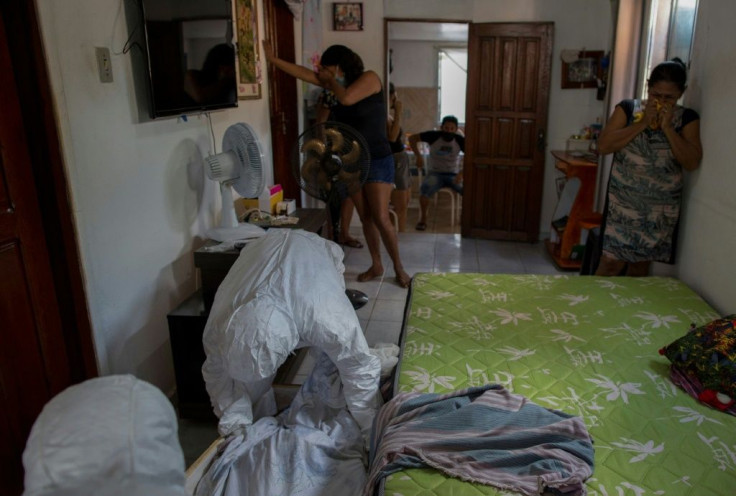
A week ago, Barbosa and her friends took to social media in search of donations of food, money, drugs and medical equipment.
On the very first day of the project, dubbed "Acao Covid" (Action Covid), they were able to hand out sanitizing hand gel and paper towels received from benefactors.
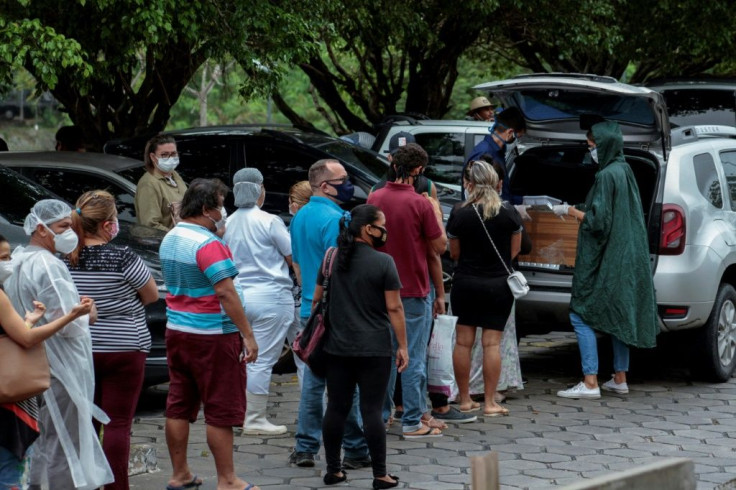
A week later, they were delivering 120 meals per day to health workers, as well as medical equipment to hospitals in the vast state of 4.2 million inhabitants.
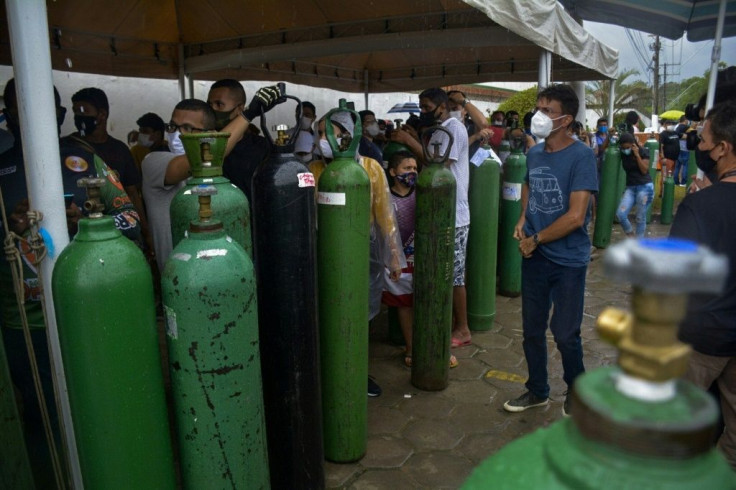
Most of the donations have come from individuals and small businesses, some of them from other states in Brazil.
Contributions come in the form of cash, but also oxygen masks, catheters, gloves, sterile alcohol, protective gear for health workers and other crucial stock.
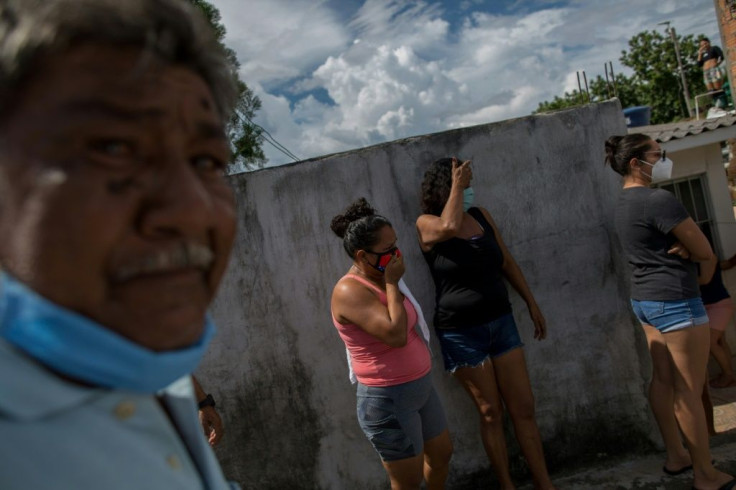
The project managed to raise about $2,000 in its first week, used to buy medicine for health centers in need.
"I did not imagine the dimensions this would take on," said Barbosa, who has paused her job at the small transport business her family runs to throw herself into this new project.
With her friend Gustavo Maia, 23, Barbosa starts every day with a planning session -- comparing donations received against requests and delivery capacity.
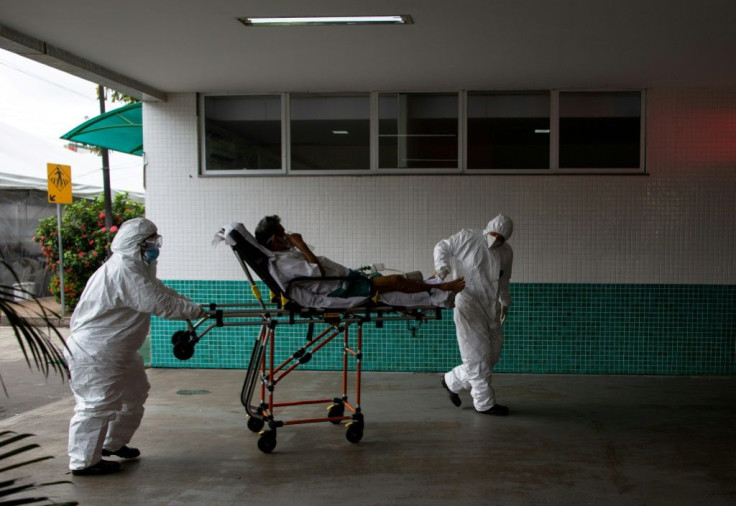
"Every evening there is nothing left, and by the next morning we have new stock," said Maia, amazed by the generosity of strangers.
"It is incredible, only God can explain that!" he beamed from behind a double mask.
Barbosa and Maia both contracted the virus during the first wave of the epidemic last year. But neither will let fear of reinfection thwart their mission.
This weekend, the small team will embark on its most ambitious project yet: delivering 40 oxygen cylinders to a town some four hours from Manaus by car.
The cylinders were donated by a small business, said Barbosa, and the oxygen was bought with cash donations.
Other young people, too, are rolling up their sleeves.
Thalyta Tamer, 22, put her hand up to run a government project connecting people with loved ones receiving treatment at the Joao Lucio hospital in Manaus.
In so doing, she also relieves the workload of doctors who have no time to interact with family members or even to inform them when patients die.
With a cellphone, Tamer allows Carla Cristine, outside the hospital, to chat by video with her father inside. Visitors are not allowed to enter the hospital, and many never see their relatives before they pass away.
"The doctors are overburdened and thanks to her (Thalyta) I can speak to my father every day. I can never thank her enough," Christine told AFP after the call, in tears.
Tamer then turns her attention to another family in search of a patient at the same hospital.
"I give my best to help these people, I treat them as if they were my family," she said.
"I rejoice when a patient leaves the hospital, I rejoice at the victories."





















